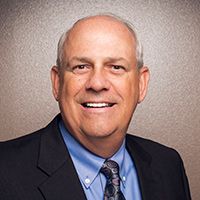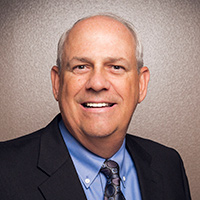8 Tax-Planning Moves to Make Before 2016 Ends
Talk to your accountant about these issues to make sure you keep more of your hard-earned money.

Profit and prosper with the best of Kiplinger's advice on investing, taxes, retirement, personal finance and much more. Delivered daily. Enter your email in the box and click Sign Me Up.
You are now subscribed
Your newsletter sign-up was successful
Want to add more newsletters?

Delivered daily
Kiplinger Today
Profit and prosper with the best of Kiplinger's advice on investing, taxes, retirement, personal finance and much more delivered daily. Smart money moves start here.

Sent five days a week
Kiplinger A Step Ahead
Get practical help to make better financial decisions in your everyday life, from spending to savings on top deals.

Delivered daily
Kiplinger Closing Bell
Get today's biggest financial and investing headlines delivered to your inbox every day the U.S. stock market is open.

Sent twice a week
Kiplinger Adviser Intel
Financial pros across the country share best practices and fresh tactics to preserve and grow your wealth.

Delivered weekly
Kiplinger Tax Tips
Trim your federal and state tax bills with practical tax-planning and tax-cutting strategies.

Sent twice a week
Kiplinger Retirement Tips
Your twice-a-week guide to planning and enjoying a financially secure and richly rewarding retirement

Sent bimonthly.
Kiplinger Adviser Angle
Insights for advisers, wealth managers and other financial professionals.

Sent twice a week
Kiplinger Investing Weekly
Your twice-a-week roundup of promising stocks, funds, companies and industries you should consider, ones you should avoid, and why.

Sent weekly for six weeks
Kiplinger Invest for Retirement
Your step-by-step six-part series on how to invest for retirement, from devising a successful strategy to exactly which investments to choose.
With the holidays quickly approaching—and the chaos from numerous parties, shopping, wrapping and feasting—your tax return is probably far from being a top priority.
Indeed, a lot of people wait until February or March—even early April, when their return is almost due—before they start thinking about preparing their paperwork and meeting with their certified public accountant.
Despite the impending holiday season, this may actually be the best time of year to see a tax professional who can help you with some of the tax-planning strategies you might not think about… or even know about.
From just $107.88 $24.99 for Kiplinger Personal Finance
Become a smarter, better informed investor. Subscribe from just $107.88 $24.99, plus get up to 4 Special Issues

Sign up for Kiplinger’s Free Newsletters
Profit and prosper with the best of expert advice on investing, taxes, retirement, personal finance and more - straight to your e-mail.
Profit and prosper with the best of expert advice - straight to your e-mail.
Many of the strategies that may cut down on what you owe should be put in place before the end of the year. If you wait until your W-2s and other tax statements start arriving in late January, you might miss out on the chance to keep more of your hard-earned money.
Here's a list of end-of-year topics that you may want to talk about with your CPA.
1. Should you itemize or go with a standard deduction on your return?
When you meet with your tax professional make sure you're able to show how much you've paid in home mortgage interest, state and local income taxes or sales tax (but not both), real estate and personal property taxes, and unreimbursed employee business expenses. Also consider any exemptions that might apply that you may also want to discuss. Ask your tax professional what those itemized deductions will mean to your bottom line versus taking your standard deduction.
2. Consider whether you could be paying taxes on money you're not using.
If you have dividends and interest on non-qualified accounts that you're not currently taking, this money could be taxable even if you just reinvested it. Often times, to add insult to injury, this can put you in a higher tax bracket, and you end up paying even more in taxes than you would otherwise.
3. Think about maxing out the employer match on your company-sponsored retirement plan and get as much of this free money as you can.
A lot of money is left on the table because employees aren't paying attention to their qualified plans and the maximum match amount. If you and your accountant think you can manage it, adjust your contribution for the rest of the year and take advantage of this benefit.
4. Consider the various ways you can give charitable contributions. It's a win-win!
Talk to your CPA about the rules regarding cash and non-cash donations and how they apply to your giving strategy.
There also are ways to fund gifts with appreciated securities. Or, if you're over the age of 70½ and dealing with required minimum distributions (RMDs), talk to your CPA or your financial adviser about directing an IRA withdrawal straight to an IRS-approved charity. Think of these strategies as arranging for the government to participate in your charitable giving.
5. Look at whether a Roth conversion makes sense for you. And if you already have a Roth, can you contribute more?
Talk to your tax professional about what tax bracket you'll end up in after your deductions. For some people, converting from a taxed-forever IRA makes sense. (But be aware that this is not a one-size-fits-all approach.)
6. Think about your medical deductions.
Ask your tax adviser if you qualify to deduct out-of-pocket medical expenses. If you're close to that mark, see if there are any procedures or appointments that still could be done in 2016 to get you there, and pay any outstanding hospital or doctor bills now. (If you don't think you've spent enough to hit the threshold for this deduction, ask your CPA if you can include medical costs for any qualifying parents and children. It's important to talk to your CPA about IRS rules and limits.)
7. If you're a small business owner, think about buying new equipment.
Some tax professionals say one of the juiciest but most overlooked deductions is Section 179, which allows small business owners (including people running home-based businesses, consulting practices, etc.) to deduct the entire cost of new machinery and equipment in the year of purchase. Ask your tax professional to take a look at your projected income for next year versus this year and get advice on timing your purchases accordingly.
8. If you think 2017 is your year to retire—plan now!
One to-do-list item not directly related to tax planning: The end of the year is a great time to reflect on your goals and your plan for the next year. If you've set your sights on 2017 as the year for you to retire, start interviewing financial advisers! Retirement is an event that could last 10, 20, 30 or even 40 years, and it's never too early to plan. Be ready to shift your thinking from accumulation to preservation and distribution. In retirement, your success may boil down to having a strong income plan in place!
Jeff Dixson is the founder, president and CEO of Northwest Financial and Tax Solutions Inc., www.nwfts.net and is an Investment Adviser Representative and Insurance Professional. He hosts a weekly radio show, "The Jeff Dixson Show: The Retirement Coach," and is the author of "Winning the Retirement Game."
Jeff Dixson offers securities and advisory services through Madison Avenue Securities, LLC (MAS), member FINRA & SIPC, a registered investment advisor. MAS and NW Financial & Tax Solutions are not affiliated companies.
Northwest Financial and Tax Solutions Inc. and its agents and representatives are not able to provide tax or legal advice. The information in this material is not intended as tax or legal advice. Please consult legal or tax professionals for specific information regarding your individual situation.
Kim Franke-Folstad contributed to this article.
Profit and prosper with the best of Kiplinger's advice on investing, taxes, retirement, personal finance and much more. Delivered daily. Enter your email in the box and click Sign Me Up.

Jeff Dixson is president and CEO at Northwest Financial and Tax Solutions Inc. and is an Investment Adviser Representative and insurance professional. He hosts a weekly radio show, "The Jeff Dixson Show: The Retirement Coach," and is the author of "Winning the Retirement Game."
-
 How Much It Costs to Host a Super Bowl Party in 2026
How Much It Costs to Host a Super Bowl Party in 2026Hosting a Super Bowl party in 2026 could cost you. Here's a breakdown of food, drink and entertainment costs — plus ways to save.
-
 3 Reasons to Use a 5-Year CD As You Approach Retirement
3 Reasons to Use a 5-Year CD As You Approach RetirementA five-year CD can help you reach other milestones as you approach retirement.
-
 Your Adult Kids Are Doing Fine. Is It Time To Spend Some of Their Inheritance?
Your Adult Kids Are Doing Fine. Is It Time To Spend Some of Their Inheritance?If your kids are successful, do they need an inheritance? Ask yourself these four questions before passing down another dollar.
-
 I'm a Financial Adviser: This Is Why I Became an Advocate for Fee-Only Financial Advice
I'm a Financial Adviser: This Is Why I Became an Advocate for Fee-Only Financial AdviceCan financial advisers who earn commissions on product sales give clients the best advice? For one professional, changing track was the clear choice.
-
 4 Ways Washington Could Put Your Retirement at Risk (and How to Prepare)
4 Ways Washington Could Put Your Retirement at Risk (and How to Prepare)Legislative changes, such as shifting tax brackets or altering retirement account rules, could affect your nest egg, so it'd be prudent to prepare. Here's how.
-
 2026's Tax Trifecta: The Rural OZ Bonus and Your Month-by-Month Execution Calendar
2026's Tax Trifecta: The Rural OZ Bonus and Your Month-by-Month Execution CalendarReal estate investors can triple their tax step-up with rural opportunity zones this year. This month-by-month action plan will ensure you meet the deadlines.
-
 Have You Aligned Your Tax Strategy With These 5 OBBBA Changes?
Have You Aligned Your Tax Strategy With These 5 OBBBA Changes?Individuals and businesses should work closely with their financial advisers to refine tax strategies this season in light of these five OBBBA changes.
-
 For High-Net-Worth Retirees, Tax Planning and Estate Planning Are the Main Events
For High-Net-Worth Retirees, Tax Planning and Estate Planning Are the Main EventsTax and estate planning can have far-reaching results for wealthy retirees and are just as important as investment management. This financial adviser explains.
-
 How to Avoid Being Buried by the Tax Avalanche in Retirement: Tips From a Wealth Adviser
How to Avoid Being Buried by the Tax Avalanche in Retirement: Tips From a Wealth AdviserAll that cash you have in tax-deferred accounts could launch you into a higher tax bracket when you start withdrawals. It's time to protect your income.
-
 Consider These 4 Tweaks to Your 2026 Financial Plan, Courtesy of a Financial Planner
Consider These 4 Tweaks to Your 2026 Financial Plan, Courtesy of a Financial PlannerThere's never a bad time to make or review a financial plan. But recent changes to the financial landscape might make it especially important to do so now.
-
 I'm a Real Estate Expert: 2026 Marks a Seismic Shift in Tax Rules, and Investors Could Reap Millions in Rewards
I'm a Real Estate Expert: 2026 Marks a Seismic Shift in Tax Rules, and Investors Could Reap Millions in RewardsThree major tax strategies will align in 2026, creating unique opportunities for real estate investors to significantly grow their wealth. Here's how it works.